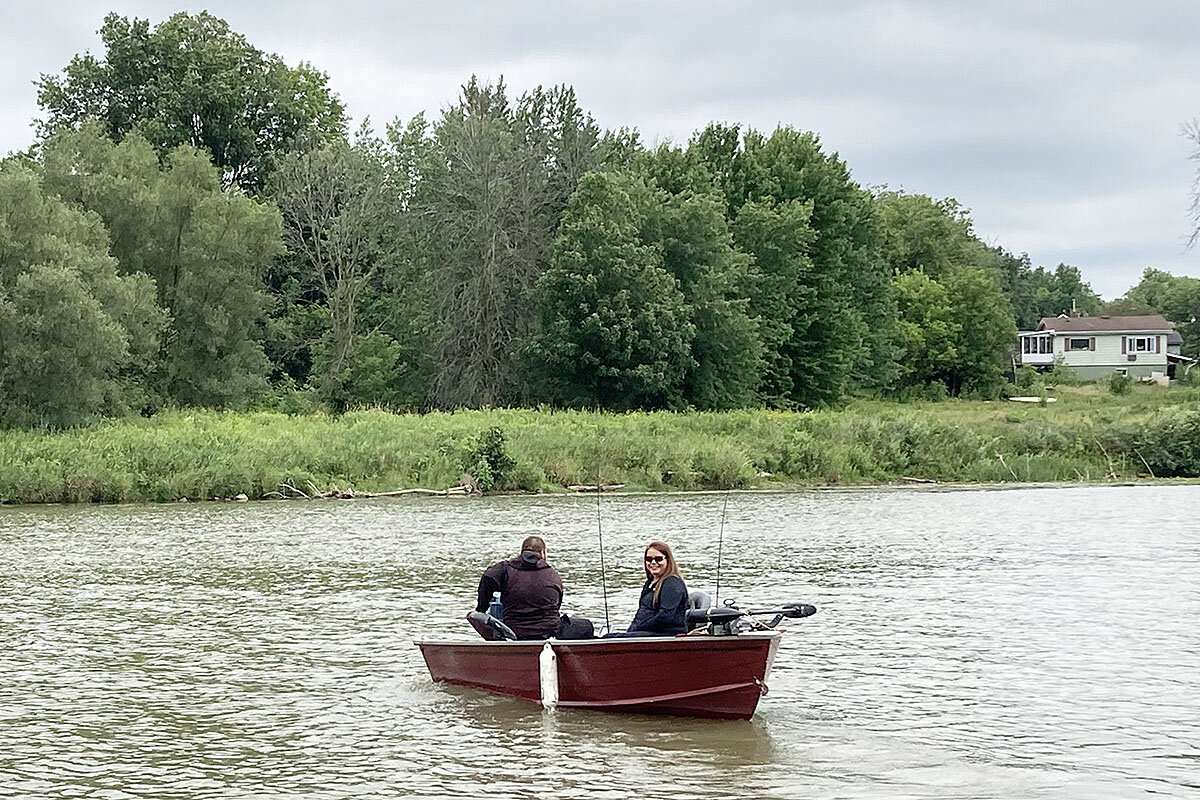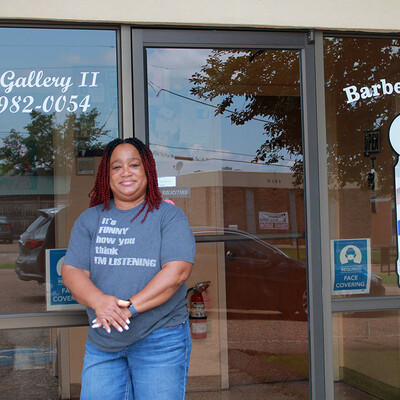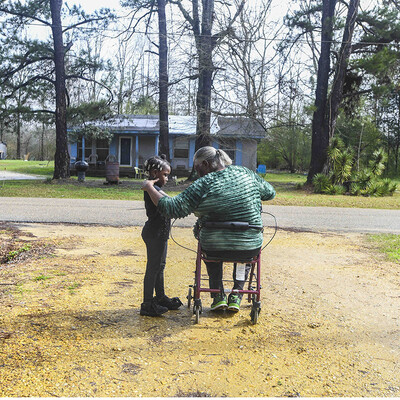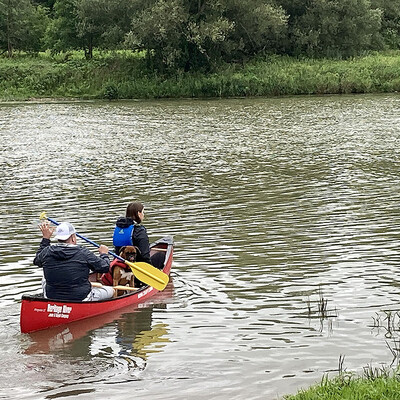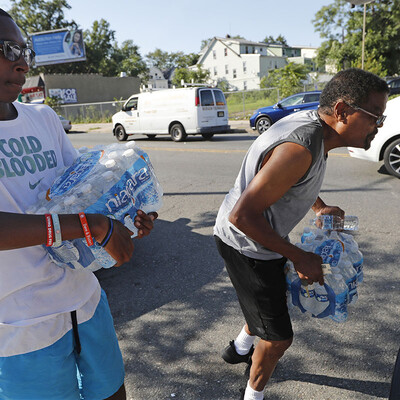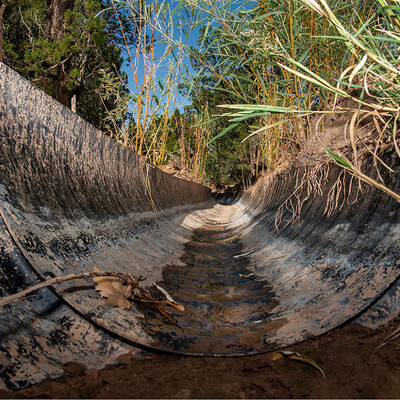Canada gets serious about water woes. Will Indigenous voices be heard?
Loading...
| Six Nations of the Grand River, Ontario
Makaลa Looking Horse has been protecting the water since she was a child โ as part of her spiritual beliefs, in protest against Nestlรฉโs extraction of water from her nationโs traditional land, and today as a youth advocate of Ohneganos, an Indigenous water research project that, in the Cayuga language, means โwater is life.โ
She doesnโt consider herself an activist. โItโs more like my way of life. And I do it every single day,โ she says. It was passed down from her parents. โBut it doesnโt stop there. My grandmothers and my ancestors, thatโs what they always did, too. So itโs not just me and my activism in a little compartment. Itโs me and my whole lineage and my people and my way of life, of always protecting the water.โย
Yet itโs exactly that worldview that has been missing in Canadian water policy. โRight now we donโt have any voice whatsoever in water governance,โ says Dawn Martin-Hill, Ms. Looking Horseโs mother, who began Ohneganos as an Indigenous scholar at McMaster University.
Why We Wrote This
Even resource-rich Canada faces threats to its water. The dawn of a new water agency has put a new focus on the role that Indigenous people can play in solutions. Third in a series on water and justice.
Thatโs why they are on the front lines of a new water fight in Canada: securing equal standing in the emergence of the new Canada Water Agency (CWA).ย
The aim of the CWA, which is expected to be running by 2022, is to modernize water policy in Canada amid myriad pressures facing the nation from climate change. But its proponents say it is also an opportunity to put Indigenous communities at the heart of governance โ restoring agency and fairness in water policy but also making smarter policy.
It comes at a time when the government, under Prime Minister Justin Trudeau, has been seeking reconciliation with Indigenous communities, and may be a model for new nation-to-nation approaches required by law. This June, Canada passed a bill that requires Canadian law to be aligned with the United Declaration on the Rights of Indigenous Peoples (UNDRIP), which recognizes Indigenous sovereignty over decisions that affect their interests.
โFor Canada, our multigenerational challenge is understanding the new relationship that weโre trying to create with our Indigenous people,โ says Rob de Loรซ, an expert on water and global environmental governance at the University of Waterloo in Ontario. โThereโs no discussion of the future of water in Canada without really clarifying that relationship.โ
โWe have not protected our groundwaterโ
Canada holds 20% of the worldโs fresh water supply. It has more lakes than any country in the world. If you live near the Great Lakes, water can seem limitless. But โa myth of abundance,โ as itโs often called, has led to complacency. Despite Canadaโs vast fresh water share, it holds .
โWe have many, many crises. We have very lax laws in Canada,โย says Maude Barlow, author of โBoiling Point: Government Neglect, Corporate Abuse, and Canadaโs Water Crisis.โ โWe have not protected our groundwater properly.โ
From pollution to gaps in access to drinking water, the challenges often fall hardest on citizens in disadvantaged communities.ย
One of Canadaโs worst failings at home is that not all Indigenous reserves have access to clean running water. At present across Canada, the government notes 32 First Nations under long-term water advisories, meaning their water is unsafe to drink. Mr. Trudeau had promised clean water to all Indigenous communities by March of this year, and while some 108 advisories have been lifted since 2015, the government missed its deadline.ย
Six Nations of the Grand River, whose traditional land spans six miles on either side of the Grand River (granted for their allyship with the British Crown during the American Revolution), doesnโt have a long-term advisory because a water treatment plant was built in 2013. But it only serves about 10% of the community โ because the infrastructure to pipe the water to everyone doesnโt exist.
To Dr. Martin-Hill and Ms. Looking Horse, this is unacceptable. They also worry about contaminants detected in the river. Dr. Martin-Hill has advocated for an Indigenous arm of a future CWA to be housed at Six Nations, where a cluster of surrounding universities have been working on water justice as has the community itself, including the Ohneganos project.ย
โThereโs all these fragments working and doing amazing work with very little support or resources. And something like an Indigenous arm could pull all that together and make really good decisions,โ she says.ย
Questions about a new agency
Currently water issues are regulated by the Canada Water Act, which dates back more than five decades to when climate change was not pressing. And water responsibilities are highly fragmented, spanning six entities and sometimes up to 20 at just the federal level, says John Pomeroy, Canada Research Chair in Water Resources and Climate Change and director of the University of Saskatchewanโs Globe Water Futures research program.ย
Dr. Pomeroy set in motion the Canada Water Agency in 2014, when he handed a two-page proposal to Mr. Trudeau, then only leader of the Liberal Party and not yet prime minister, to create an overarching entity that could integrate river basin management and data so that all Canadians share a full view of water quality and quantity, to be able to predict and forecast water shortages and water quality problems.ย
โWeโve seen the benefits of having the Public Health Agency of Canada being in place when the pandemic hit, itโs hard to imagine how things would have been without one,โ Dr. Pomeroy says. โBut Iโm in a hurry. I see all the water problems, and I would include the fires in British Columbia as part of our water problems. ... So we need this agency yesterday, because itโs one of our principal ways of dealing with the impacts of climate change in this country.โ
Canada is warming at , and in parts of northern Canada the rate is three times the average. In recent years, the nation has contended with more intense forest fires, drought cycles, and mid-winter flooding.ย
The CWA is still in very early stages, without a budget, staffing, or headquarters. Canada in 2021 budgeted $17.4 million to Environment and Climate Change Canada to support work with the provinces, territories, and Indigenous communities on the agencyโs scope and mandate. Public consultations wrapped up in March, while they are ongoing with Indigenous communities. The ECCC says to date it has informed 113 Indigenous nations and organizations about engagement with the Canada Water Agency, with 9 participating in fiscal year 2020-2021, according to an ECCC spokesperson.
Terry Duguid, the governmentโs lead on the CWA, says a central focus is bringing Indigenous voices into the discussion, including blending Western science and traditional Indigenous knowledge. โIndigenous governments and communities havenโt really been at the table when it comes to water management in our country. And they have often been the ones that have borne the brunt of water related impacts,โ says Mr. Duguid, a Liberal parliamentarian from Winnipeg.
โWater is everything; it is lifeโ
Brenda Greene, who lives on the Six Nations reserve, says she worries about the quality of the water for future generations.ย
On a recent Saturday she is heading out on the river to fish for bass, like she grew up doing. But she fears the fish arenโt as healthy as they once were. โWater is everything; it is life,โ she says.ย
Indigneous communities have won hard-fought rights in recent years, including control over child welfare policies in many jurisdictions. But water rights have remained elusive and this is a chance to right that, says Merrell-Ann Phare, a lawyer and activist for Indigenous environmental rights.
Ms. Phare worries that the CWA will resort to the status quo if Indigenous governments donโt design it from the ground up, starting now. โYou donโt design an institution and then invite people to it if you want reconciliation,โ she says. โIf we want to solve the water problem together, we build the institutions together and then we implement the institution together. Weโre accountable for the institution. Together โ we share in its success together.โย
Staff writer Ryan Yu in Toronto contributed research to this article. Read the first and second articles in our water and justice series.








